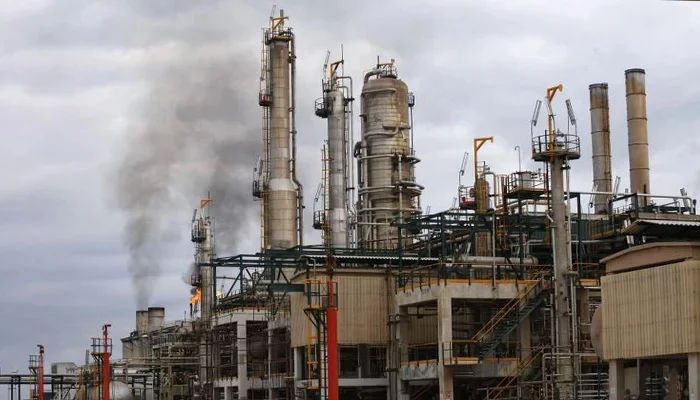
KARACHI: Pakistan’s newly-approved Brownfield Refining Policy will lower the output of furnace oil, a high-sulfur fuel, of all refiners by 78% to 3,400 tonnes per day from the current level of 15,500 tonnes per day, The News reported on Friday
The policy envisages a massive reduction in the FO production capacity of all refineries after upgraded local refineries produce more petrol and diesel from crude oil than fuel oil.
According to the policy document, available with The News, all existing refineries are encouraged to upgrade, modernise, and expand (upgrade project) their refineries to produce environmentally friendly fuels as per Euro-V specifications and to maximise the production of motor gasoline and diesel by minimising furnace oil (FO)/other fuels.
“The refineries that commit to upgrade shall be entitled to incentives under this Policy. The selection of equipment, technology, or process will be on a project-to-project basis by the concerned refineries.”
The document indicates that the fuel oil production capacity of Pak Arab Refinery Limited (PARCO) would fall by 212 tonnes per day from the existing 3,290 tonnes per day.
The FO production capacity of Attock Refinery Limited (ARL) will fall to 908 tonnes per day from the current 1,024 tonnes per day. Pakistan Refinery Limited (PRL)’s FO production capacity will go down to 167 tonnes per day from 1,350 tonnes per day presently.
The fuel oil production capacity of National Refinery Limited (NRL) will fall to 1,127 tonnes per day from the existing 2,253 tonnes per day. Cnergyico Pakistan Limited (CPL)’s FO production capacity will fall to 1,000 tonnes per day from the present 7,500 tonnes per day.
On the other hand, the production of petrol and diesel would be manifold higher after the local refineries are upgraded as per the plan. PARCO’s diesel production capacity will go up to 8,082 tonnes per day from the existing 5,600 tonnes per day.
ARL’s diesel production will remain almost the same. PRL will be producing 6,111 tonnes per day from the existing 1,350 tonnes per day. NRL’s diesel production will be doubled to 4,087 tonnes per day from the existing 2,253 tonnes per day and CPL’s diesel production capacity will move up to 11,000 tonnes per day from the existing 8,500 tonnes per day in the post-upgradation period.
PARCO’s petrol production capacity will go up to 5,493 tonnes per day from the current 3,678 tonnes per day and ARL’s production of petrol will go up to 2,379 tonnes from 1,923 tonnes per day presently.
PRL will see a massive jump when its petrol production capacity will jump to 4,854 tonnes per day from the current production of 783 tonnes per day.
Likewise, NRL will also see significant improvement after its petrol production will be 2,025 tonnes per day from 818 tonnes per day. CPL’s petrol production capacity will go up to 6,500 tonnes per day from the existing 3,500 tonnes per day.


































































































